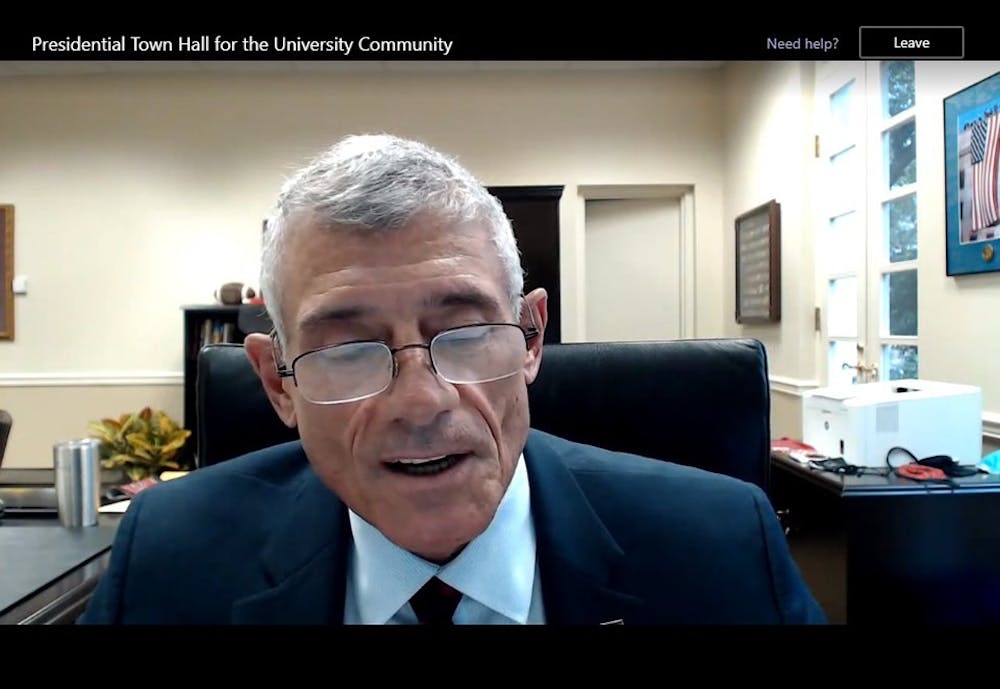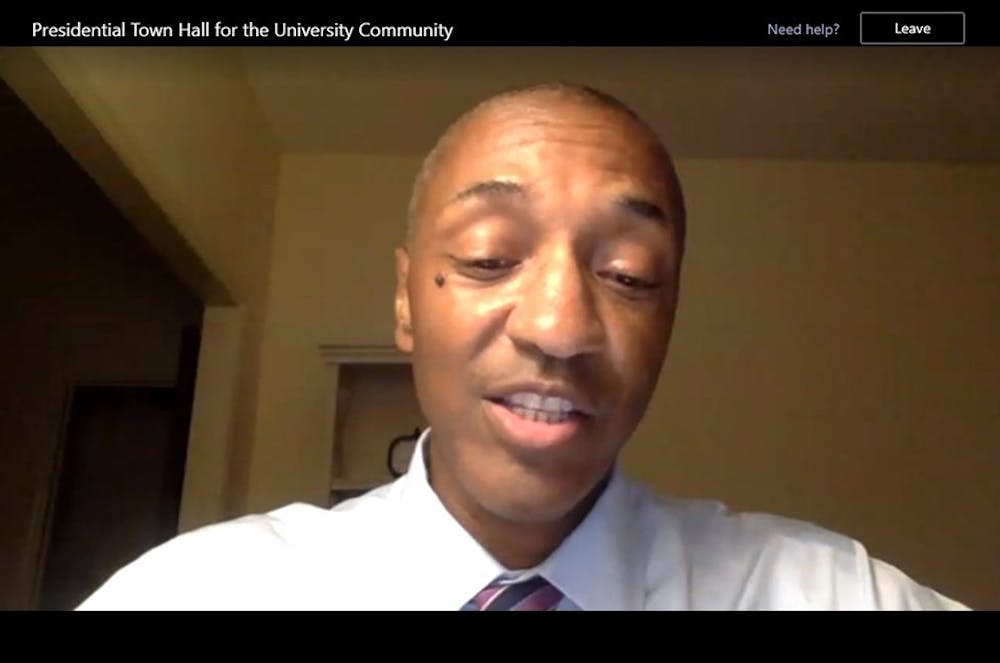The spring semester will look a lot like the fall, Provost William Tate said at a town hall on Wednesday.
“The plan is to continue the strategy we did this semester,” Tate said, with classes being taught online, in-person and hybrid.
Tate said ideally, professors would list courses as hybrid so that it is easier to make a switch if needed. He said some professors might not be able to teach in-person because of health issues.
“We’re going to have a combination of all of the situations that we have currently in the spring, with a priority of hopefully having more categorized as being able to be hybrid in nature,” Tate said.
As far as spring break goes, Tate said the university will have to “to wait and see where we are.”
President Bob Caslen said the university now stands at 193 active coronavirus cases, with one of those being a university employee and the other 192 being students. This is down three from Tuesday’s COVID-19 dashboard update.

Caslen said the drop was from “a modification of student behaviors.”
"I do want to applaud the 90%, the 90%-plus students who are taking this very seriously, who are doing all the right things, and it's showing," Caslen said.
Caslen also noted the lower percent positive rate, which is now sitting at 7.4%.
“Not to say that we're in good shape. I know that we're in the middle of a pandemic, and I anticipate that we're still going to see bumps out there; probably will see ups and downs, and we'll continue to pay attention to it as we have been all along,” Caslen said.
Quarantine/isolation capacity has also increased, from 560 total rooms to 828 total rooms. The Daily Gamecock is waiting for comment about where the additional quarantine/isolation spaces are located.
Saliva testing on Davis Field is currently doing about 400 tests per day, but Caslen said he hopes that will be up to 800 by the end of this week. After closing on Sept. 3, saliva testing restarted on Sept. 8 at a capacity of 200 per day.
The university is also partnering with Nephron Pharmaceuticals Corp., which is doing about 400 nasal swab tests per day. Around 17,500 tests have been done by the university since Aug. 1, according to Deborah Beck, the executive director of Student Health Services.
“When we talk about our percent positive rate going down and the number of cases on our campus going down, that is actually being recognized in that wastewater surveillance," Beck said. "When we had an increase in surge of cases, we also had an increase in the viral loads within that wastewater, all of that has actually started going down as well.”
The Department of Health and Human Services, in a partnership with USC, will be doing testing at Founders Park and the Martin Luther King Jr. Park in Five Points starting Saturday, Caslen said. The DHHS testing will go on for two weeks.
Caslen said he wants all students to be tested before leaving for Thanksgiving.
“We want to make sure that they're going to go home in a safe and healthy manner that they're not going to bring out the virus with them and spread it to their families and even some of the most vulnerable groups like grandparents and stuff like that,” Caslen said.
Caslen and Julian Williams, the vice president for diversity, equity and inclusion, introduced the Brave & Bold Dialogues: Diversity, Equity & Inclusion diversity module in an email Wednesday. All freshmen and transfer students will be required to complete the training, which will “delve into the subjects of diversity, equity and inclusion through self-reflection and awareness exercises.”
“We know that that's not going to be a cure-all for everything that we have to do. But it is a layer and a foundation that we could build upon as a university,” Williams said in the town hall.
He said the module is similar to the AlcoholEdu and the Sexual Assault Prevention for Undergraduates training the students are already required to do.
For study abroad next semester, Tate said the university is still “working on providing safe opportunities.”
“I do believe we will stand up some opportunities. Obviously, if something happens in this set of countries that we have selected, we would have to pull back,” Tate said.

